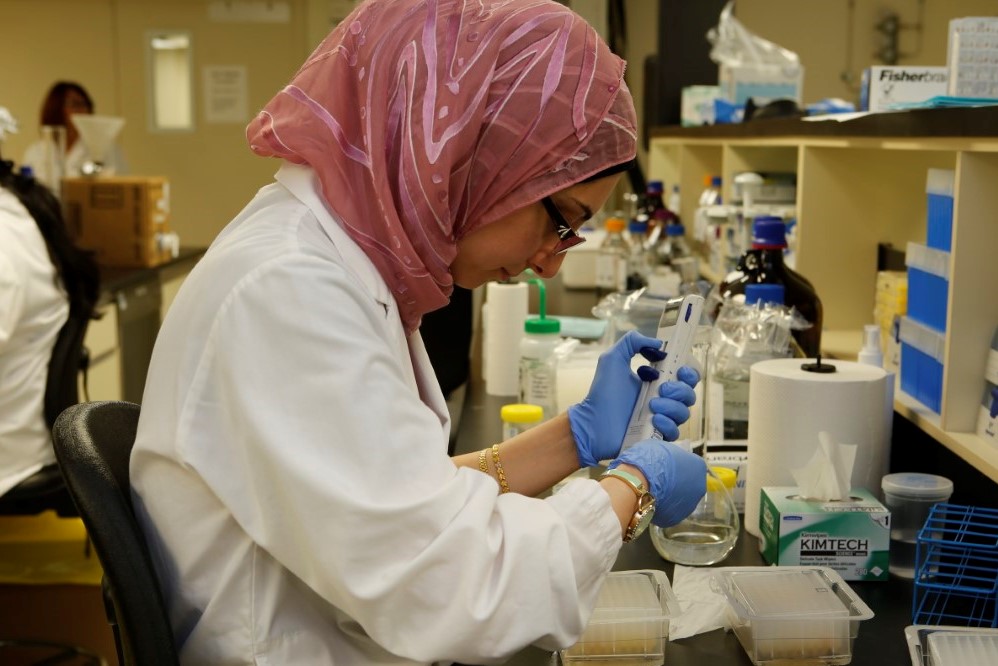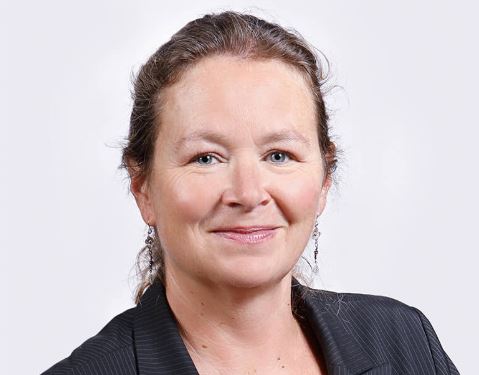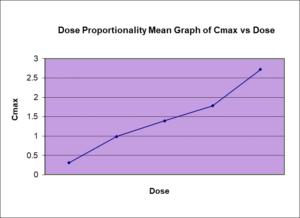BioPharma Services: Canada’s Leading CRO Delivering Excellence In Bioanalysis Bioequivalence Studies

In today’s technology-driven pharmaceutical and biotechnology industry, the role of bioanalysis service providers during the process of drug discovery and development has become significant. By improving the overall quality, accuracy, and speed with which drug analysis in biological fluids is handled, bioanalysis enables safe and more efficacious drug development. Typically, once a drug compound is developed, the C-suite heavily relies on the scientific expertise of its bioanalytical team to develop a custom validated assay for analysis of their drug in a clinical trial. But, amidst the plethora of service providers supporting the drug development programs of companies, the most successful ones are those who have a differentiating factor in them.
BioPharma Services (BioPharma)—a full-service Contract Research Organization (CRO) that specializes in Phase I/IIa studies, and Bioequivalence clinical trials for renowned international pharmaceutical companies worldwide, found its differentiator in Dr. Nicki Hughes and her team.

Dr. Nicki Hughes, Vice President of Bioanalytical Operations.
As an industry veteran with over 20 years of experience in Bioanalytical Research, Dr. Hughes founded Bioanalytical Laboratory Services (BLS)—a Division of LifeLabs—in 2013. She has been a key contributor/invited speaker at WRIB—a world-class bioanalytical conference, and also a contributing author for these publications for more than ten years. She joined the BioPharma team in 2016 as the Vice President of Bioanalytical Operations after facilitating an acquisition that merged her former team at BLS with BioPharma’s existing bioanalytical operations. Although BioPharma added its bioanalytical operation in 2011, the acquisition reinforced the company’s footprint in delivering best in class bioanalytical services, making it a global leader in full-service clinical research services.
With a leader who is well-respected by both clients and regulators, BioPharma has developed a robust scientific team that is highly capable and flexible to meet a client’s specific needs, regardless of how challenging it might be. “CIOs rely heavily on the expertise, capabilities, reliability, and proven quality of work conducted at BioPharma Services to tackle each unique problem successfully. We overcome Bioanalytical challenges through an in-depth understanding of each molecule, its metabolism, and the requested/anticipated calibration range. Our ultimate aim is “no surprises” during the application of any bioanalytical method,” asserts Dr. Hughes.
In addition to BioPharma’s clinical and bioanalytical capabilities, additional support services include Biostatistics and Safety Data Analysis (CDISC), scientific and regulatory affairs, medical writing, and data management. BioPharma Services is headquartered in Toronto, Canada, with their 180-bed clinical and bioanalytical facilities operating under a single site. In 2014, the company expanded its clinical capabilities, opening up a 120-bed clinical centre in Columbia, Missouri, USA. Today, the company has conducted over 2200 trials to support drug submissions to all the major markets and offers more than 180 validated assays covering a wide variety of therapeutic areas.
Moreover, the laboratory houses 4 Sciex API 4000 and 5 QTRAP 5500 LC-MS/MS systems and offers clients “customized” bioanalytical solutions to support clinical and non-clinical (GLP) studies for new chemical entities (NCEs). The company provides continued adherence to new guidances (FDA, National Medical Products Administration [NMPA], ICH M10, ANVISA, EMA) with its method validation approach, competitive market pricing without compromising on quality, as well as NDA programs for new-chemical entities—supporting both non-clinical and clinical study arms.
“We set high expectations for the quality of our work and take immense pride in what we do. We track laboratory metrics and are proud of a >98 percent passing batch rate and ISR results of >95 percent. In our laboratory, “Just good enough” is “not good enough!” states Dr. Hughes.
BioPharma’s bioanalytical laboratory received GLP accreditation from the Standards Council of Canada (SCC) in 2015. Since then, the lab has run a series of successful studies in animal matrices followed by First in Human Phase 1 studies to support New Drug Application (NDA) programs. Steering ahead, BioPharma is looking to expand this area of research for other sponsors with standalone NDA programs for developed and validated assays for both the non-clinical and clinical arms of the application.
“We are an excellent partner for this type of work with our exceptional scientific team, high-quality infrastructure, and commitment to providing rapid results during dose escalation and key decision-making. We work hand-in-hand with our clients to mitigate their challenges and ensure we meet their requirements at any cost. This boutique approach is what drives our success and makes us a unique player in the market,” concludes Dr. Hughes.
Read the original post here: BioPharma Services: Delivering Excellence through Effective Bioanalysis
BioPharma Services Inc. is a contract research organization that conducts research studies across all medical disciplines. Our offices and study sites are located in Toronto, Ontario and Columbia, Missouri.
Popular Posts
-
What are early phase clinical trials?
Clinical Trials are divided into 4 phases. Phase 1 and 2 trials constitute early phase trials, Phase 3 and 4 research studies are late-phase trials.
The primary objective of Phase 1 studies is to determine the correct drug dosage by evaluating drug safety and determining if there are any side effects. Phase 1 trials are conducted in healthy volunteers.
Phase 2 studies also study the safety of a drug but focus on evaluating its effectiveness. These studies can be conducted in healthy volunteers or in individuals who have a certain disease or condition.
-
What is a clinical trial?
A Clinical trial is a process which is performed to determine whether an investigational drug, device or therapy is safe and effective. In early phase research (i.e. Phases 1 and 2), the safety and effectiveness of the drug will be evaluated in healthy volunteers.
-
What is an investigational drug?
An investigational drug can also be called an experimental drug and is being studied to see if your disease or medical condition improves while taking it. Scientists are trying to prove in clinical trials:
- If the drug is safe and effective.
- How the drug might be used in that disease.
- How much of the drug is needed.
- Information about the potential benefits and risks of taking the drug.
-
Why do you need to take blood draws and how many blood draws will be required?
In order to evaluate the drug profile, we need to understand its pharmacokinetics. This is essentially how the body reacts to a drug after its administration through the mechanisms of absorption, distribution, as well as the metabolic changes. Therefore, blood draws are collected at various time points to better understand this mechanism. Each study requires a specific number of blood draws and total blood volume. These values will be provided to you and clearly stipulated in the informed consent form (ICF). The amount of blood that will be taken is outlined in the ICF.
-
Should I expect to experience any side-effects while doing studies?
As every study is testing an investigational product, there may be side effects. You will be provided with a list of side effects that have been reported in previous trials (if any), so you can make an informed decision whether or not to participate in the trial. During the trial you will be required to immediately inform clinic study staff of any adverse effects that you are experiencing. These side effects usually resolve upon discontinuation of the study drug.
-
Will I be compensated for doing a clinical study?
Volunteers are compensated and the amount varies depending on the length of the clinical trial, length of stay and number of follow-up visits. The compensation is not specifically related to the risks or type of drug involved in the trials or studies. Every study is different and therefore, the compensation will vary. Study volunteers may receive between $1000 to $4000 for a trial (based on the factors listed above).
-
Are food and accommodation provided over the course of the trial?
Food – Clinical trials are conducted in a controlled setting which means that all food is provided and trial volunteers receive standardised meals. Individual meal plans or meal preferences cannot be provided. If you have any food allergies or hypersensitivity to food product(s) that are clinically significant or life-threatening you may not be able to participate in a trial. Please contact us to discuss any food issues.
Accommodation – During your in-clinic stay you will share sleeping areas with other volunteers who are of the same gender. Similar to a hospital setting, supervision will be provided to ensure that your health and safety are being monitored.
-
What is the length of a study and do I have to complete all the visits?
Details of the duration of a study can be found on the Volunteer Hub.
-
What is informed consent and how is it carried out?
Before you decide whether or not to take part in a clinical research study, you will be required to read and understand the information provided in an Informed Consent Form (ICF). The ICF describes the clinical research study and the nature of the investigational product to be used, including:
- Your rights and responsibilities as a study participant.
- What you will be asked to do during study participation.
- The potential risks that you should be aware of.
During this process, you will have the opportunity to discuss and ask questions related to the conduct of the clinical research study with the study doctor/ study staff. You are under no obligation to participate and your decision to take part in a clinical trial is voluntary.
-
Can I bring my own device?
Yes, we encourage you to bring items that will help to pass the time while you are in the clinic. You can use the time to study or work or catch up on the movies you’ve been meaning to watch.
-
What do I need to pack?
Wondering what to pack before your site visit? Visit our Packing List page to learn more.
-
When do I receive compensation for taking part in a study?
You will receive compensation as outlined during the Informed Consent process. Typically, you will receive compensation once all study visits have been completed. If, for any reason, you do not complete all study visits, your compensation will be on a pro-rated basis (i.e. for the time that you have participated in the trial)
-
Where will I sleep during the clinical study?
We provide a clean, safe socially distance sleeping environment, in a dormitory of hotel room style. Watch video
-
Can I bring my own food?
All aspects of clinical trials are closely monitored including the food and drink consumed by participants. While you are in the clinic, you will be provided with all meals as per the study guidelines. You will need to eat all the food provided to ensure the guidelines are met. Watch video
-
Privacy
We respect and value the privacy of our volunteers. View our Privacy and Cookie Policy here.



